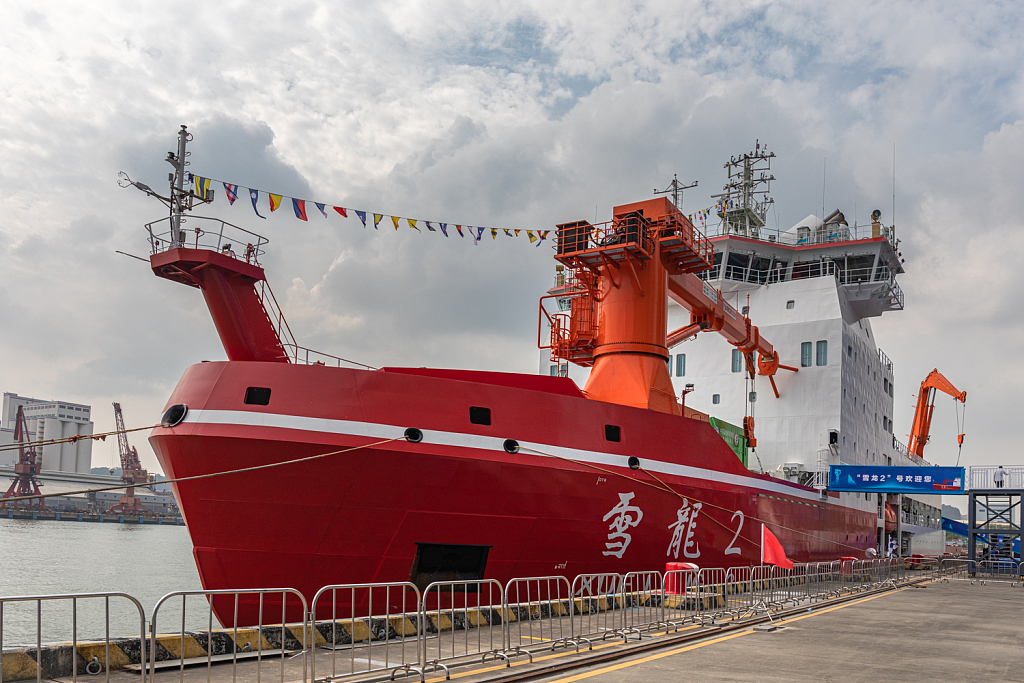China and Russia strengthen strategic partnership along 'Polar Silk Road'
By Matteo Giovannini | chinadaily.com.cn | Updated: 2019-12-06 17:06

On Dec 2, Chinese President Xi Jinping and Russian President Vladimir Putin announced via videoconference the launch of the "Power of Siberia" gas pipeline, an infrastructure able to provide the Chinese market with at least one trillion cubic meters of gas in the next three decades. This new natural gas pipeline connecting Russia and China represents only the latest example of a stronger collaboration between the two countries in the Arctic Circle.
China and Russia signed a $400 billion deal in 2014 to build a pipeline stretching about 3,000 kilometers from Russia's Siberia to China's coal-burning northeast, reaching Shanghai as the ending point. The construction of the pipeline comes after China unveiled a plan nearly two years ago called the "Polar Silk Road," in order to expand its influence in the Arctic Pole.
The importance of the "Polar Silk Road" has heightened due to climate change and global warming. Arctic sea ice is increasingly diminishing during summer seasons, and this has an effect on the commercial use of maritime trade routes, scientific research and the exploration and exploitation of resources.
At the beginning of 2018, China's State Council Information Office published a white paper titled "China's Arctic Policy". The document represented China's Arctic strategy and the ambition to build a "Polar Silk Road" or "blue economic passage" under the Belt and Road Initiative.
As an example, a ship that plans a trip from China to Europe through the conventional sea route takes around 40 days of navigation. The possibility to navigate through the polar region along the Russian coast can save up to two weeks of navigation. Under the Belt and Road Initiative, the "Polar Silk Road" represents an alternative to the traditional sea route connecting China to Europe through sensitive passages such as the Suez Canal and the Strait of Malacca.
In order to realize the "Polar Silk Road", China has entered into joint venture agreements with Russian gas companies, built a large embassy in Iceland, financed the construction of a train route connecting China to Finland, strengthened relations with Norway and invested in Greenland, a strategic move for this country to become less dependent on Denmark.
Of all these deals, the relationship with Russia stands out as the most strategic due to the size of the country and its importance in a geopolitical context.
From this point of view, the Power of Siberia gas pipeline project represents an example of a win-win partnership finalized due to mutual convenience.
China has a need for energy every year to support its growing economy, and Russia's abundance of natural resources represents an opportunity to find cheaper, cleaner and greener alternatives to coal. Moreover, China has been one of the countries to subscribe to the Paris Agreement and has great interest in reducing its greenhouse gas emissions. A reduction of the usage of coal and a conversion to cleaner energies, in both renewable (solar, wind, wave, tidal) and sustainable (nuclear) forms, can only be reached through infrastructural and R&D investments. This would have a positive impact on the reduction of pollution released in the environment, guaranteeing a healthier life for Chinese people who live in big cities.
From the Russian side, cooperation primarily focuses on energy development. Russia provides China with access to its resources, while China offers the capital needed for Arctic development. This capital is necessary for Russia due to US and EU sanctions that have limited Russia's access to foreign funds. With its relationship with Western countries becoming more fragile, Russian leaders turn their attention to opportunities offered by China. Moreover, the increase of natural resource exports to China can help Russia improve the economic conditions of the eastern part of the country that is still underdeveloped, and also guarantee Russia a diversification of its exports.
Through these efforts, China and Russia are creating an alliance that could change and reshape global power, connecting Europe and Asia.
The author is a finance professional at ICBC in Beijing and a member of the China Task Force at the Italian Ministry of Economic Development. The views don't necessarily represent those of China Daily.
























